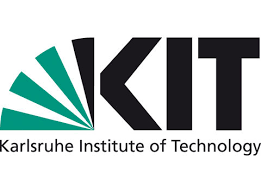Karlsruhe Institute of Technology: Driving force for sustainable developments
“The KAT is the first institution in Baden-Württemberg that brings together science and research on the one hand and economic, municipal and civil society actors on the other hand in order to share and increase knowledge on sustainability issues. I am convinced that this is a key to achieving our climate protection goals quickly and together. The facility builds on the good experiences of the real laboratories at KIT, which Baden-Württemberg is promoting nationwide,” says Baden-Württemberg Minister of Science Theresia Bauer.
The KAT combines science and practice in seven fields of action: research, education, advice, understanding and networking, reflection and contemplation, experimental spaces as well as action and innovation. In order to advance the “Great Transformation”, the need for which the German Advisory Council on Global Change showed in 2011 in its report “World in Transition – Social Contract for a Great Transformation”, the KAT builds a bridge from knowledge to action.
“We are proud to be able to show as a university of excellence that outstanding research and practical relevance are not mutually exclusive, but can be wonderfully combined, as in the KAT,” says the President of KIT, Professor Holger Hanselka. “This creates direct added value for science and for society.” With the KAT, the KIT supplements its broad range of topics. The new facility focuses on people and society and is committed to a good life in the future that respects the environment, the world around us and posterity. “With its clear sustainability orientation and openness to society, the KAT enriches the KIT with its fields of action of transfer and sustainability enormously,” emphasizes the Vice President for Transfer and International Affairs of the KIT, Professor Thomas Hirth.
Forschende begeben sich selbst in Wandlungsprozesse
The KAT understands transformation as a comprehensive eco-socio-technical change and researches and accompanies innovations for sustainable development in all areas of life. It develops comprehensive training courses and offers individual advice for municipalities, institutions, companies and organizations. Real laboratories create interfaces between science, business, politics and society. The KAT is located at the Institute for Technology Assessment and System Analysis (ITAS) of the KIT, which can look back on 25 years of internationally recognized sustainability research, has already gained extensive experience with real laboratories and for the real laboratory “Quartier Zukunft”, which is continued to be operated and expanded by the KAT , has been awarded several times. “Researchers enter into change processes themselves and are involved in them. With this rather unusual way of doing research, knowledge can be gained that cannot be generated by external observation,” says the head of ITAS, Professor Armin Grunwald, describing the work in the living laboratory. The initiator and leader of the KAT is Dr. Oliver Parodi, research group leader at ITAS, who also set up the living laboratory “Quartier Zukunft”. “With the KAT, we are creating an institution of change and bringing issues such as climate protection, energy transition and a culture of sustainability to a practical level,” explains Parodi, who heads the 17-person interdisciplinary team. how it cannot generate an observation from the outside”, describes the head of ITAS, Professor Armin Grunwald, the work in the real laboratory. The initiator and leader of the KAT is Dr. Oliver Parodi, research group leader at ITAS, who also set up the living laboratory “Quartier Zukunft”. “With the KAT, we are creating an institution of change and bringing issues such as climate protection, energy transition and a culture of sustainability to a practical level,” explains Parodi, who heads the 17-person interdisciplinary team. how it cannot generate an observation from the outside”, describes the head of ITAS, Professor Armin Grunwald, the work in the real laboratory. The initiator and leader of the KAT is Dr. Oliver Parodi, research group leader at ITAS, who also set up the living laboratory “Quartier Zukunft”. “With the KAT, we are creating an institution of change and bringing issues such as climate protection, energy transition and a culture of sustainability to a practical level,” explains Parodi, who heads the 17-person interdisciplinary team.
The Mayor for Environment and Health of the City of Karlsruhe, Bettina Lisbach, welcomes the innovative facility: “The KAT is a real enrichment for organisations, companies, municipalities and also for the Karlsruhe region. Climate change, resources and social issues are major challenges for our cities. We are pleased that a competence center is being created in Karlsruhe that will help make our cities fit for the future.”

